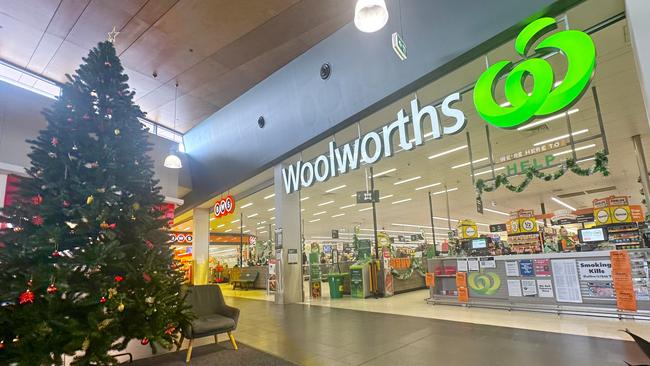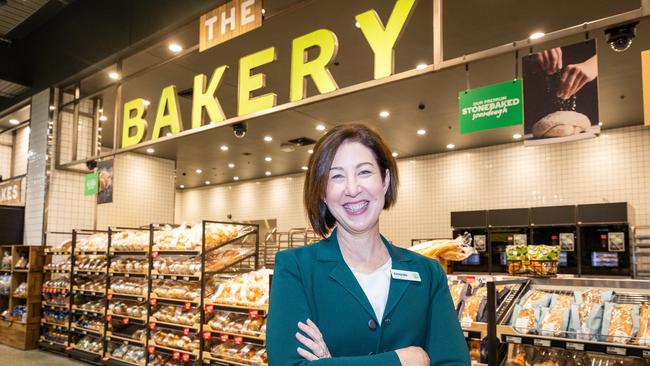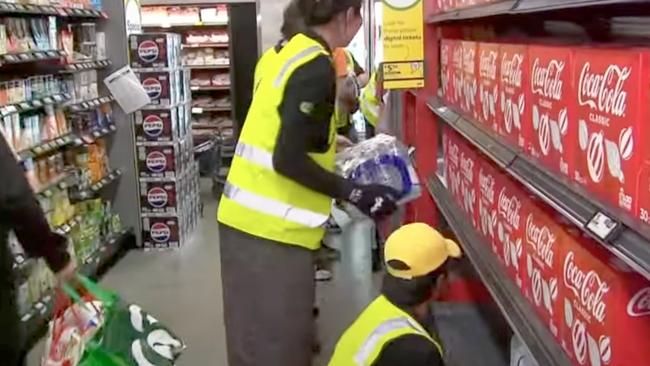Woolies facing criminal charges from Kiwi supermarket regulator
Woolworths’ regulatory challenges have spread across the Tasman, with its New Zealand subsidiary facing criminal charges over alleged inaccurate pricing and misleading specials.

Woolworths’ regulatory headaches have spread across the Tasman, with its New Zealand unit facing criminal charges over alleged inaccurate pricing and misleading specials.
Woolworths’ regulatory headaches have spread across the Tasman, with its New Zealand unit facing criminal charges over alleged inaccurate pricing and misleading specials.
The New Zealand Commerce Commission on Tuesday announced it would be filing charges against Woolworths NZ for what it alleges were inaccurate pricing and misleading specials under the country’s fair trading laws.
Commission deputy chair Anne Callinan said shoppers should have confidence that the “price they see will be the price they pay, and specials really are special”.
“Supermarkets have long been on notice about the importance of accurate and clear pricing and specials, and we’re not satisfied with the continuing issues we’re seeing across the industry,” Ms Callinan said. “Pricing accuracy is a consumer right and an expectation of a competitive market.”
She said major supermarkets were large, well-resourced businesses that should invest time and effort to get pricing and promotions right.
Woolworths New Zealand operates 186 stores, serving some three million customers a week.
In Australia, Woolworths and Coles have both been hit with similar claims that they promoted “misleading” or “illusory” discounts on hundreds of common supermarket products.

The Australian Competition & Consumer Commission’s proceedings in the Federal Court alleged a breach of Australian Consumer Law by “misleading consumers through discount pricing claims” on products.
Court documents from the ACCC said Woolworths and Coles fooled customers into buying everyday groceries by using fake discounts spanning almost every aisle of the supermarket, from tampons and fly spray to pet food and even infant milk formula.
Woolworths and Coles have denied accusations of fake discounts by saying almost all followed price-hike requests from food and grocery suppliers, which made later discounts genuine.
The NZCC is planning a mandatory disclosure standard that will require major supermarkets to regularly disclose information about customer complaints, including around pricing and promotional issues.
Commissioner Pierre van Heerden said major supermarkets in New Zealand did not have consistent processes for recording customer complaints.
“The lack of clarity and reporting means supermarkets can’t identify potential compliance issues within their businesses,” said Mr van Heerden.
“This impacts consumers as their complaints may not be being dealt with effectively, which we would expect in a competitive market.”

Woolworths New Zealand said it had been co-operating with the NZCC in relation to its investigations for some time and the company would carefully review legal proceedings once they were filed.
Woolworths New Zealand managing director Spencer Sonn said it was important customers could trust the prices it advertised. “But sometimes errors occur,” Mr Sonn said. “To address this, Woolworths New Zealand has a long-standing and market-leading refund policy. In summary, if a customer is charged more for a product than the price we advertised it for, or is displayed on our shelf, they get a refund and to keep the product.
“More broadly, we are also in the process of introducing electronic shelf labels in all of our stores to ensure that there are no paper-based shelf label errors. To date, 130 of our 186 stores have electronic shelf labels in place.”
The NZ legal action adds to challenges for Woolworths chief executive Amanda Bardwell as she faces debilitating losses – up to $140m in sales so far – after union strike action at its warehouses in NSW and Victoria.






To join the conversation, please log in. Don't have an account? Register
Join the conversation, you are commenting as Logout